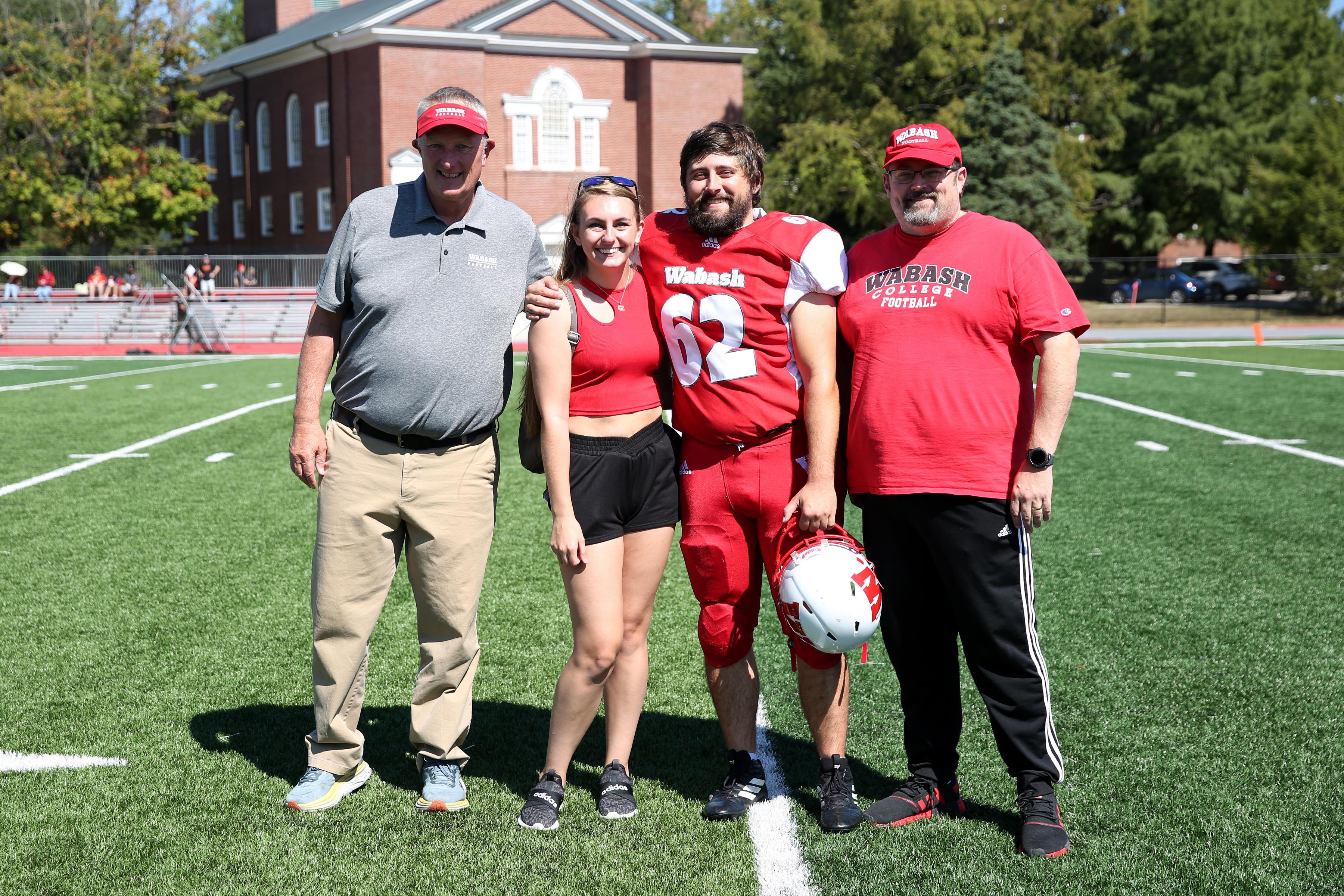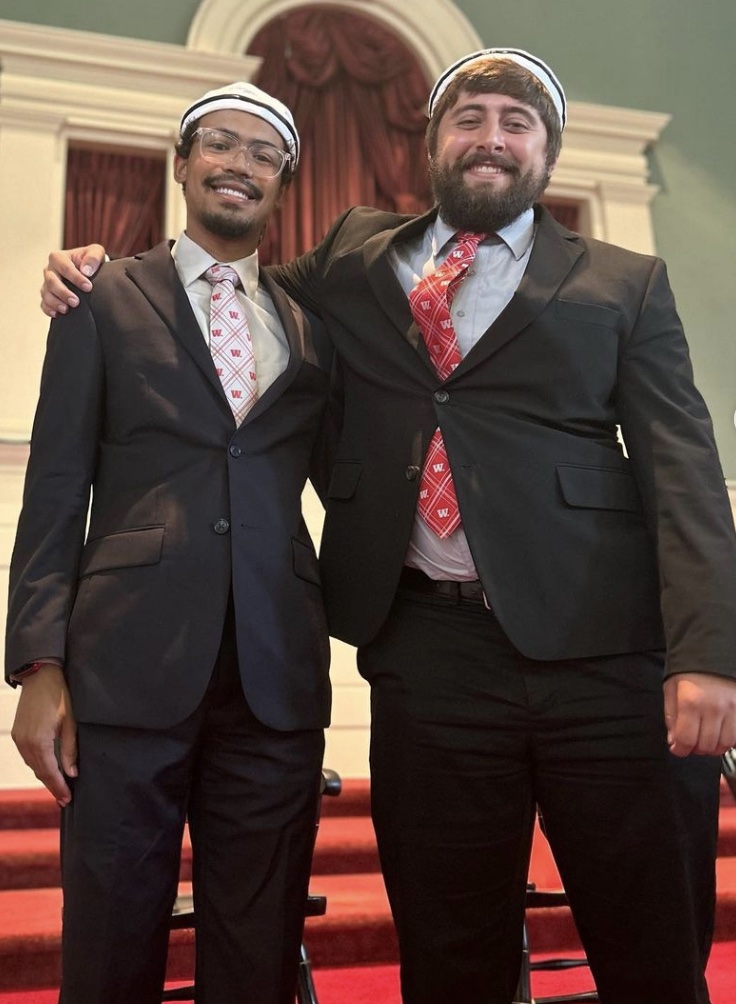It’s easy in football—and life, really—to be excited and energetic when things are going well, but it’s hard to maintain that attitude when times are tough.
Olmy Olmstead ’04, assistant football coach, says watching Cole Bergman’s ability to do both on and off the field has been “second to none.”
“His enthusiasm and support of his team, regardless of the score, or the opponent, or the time in the game was unwavering,” Olmstead said of the senior defensive lineman. “He’s a constant and consistent leader.”
Even as he watched his peers from the sidelines his first few years on the team, Olmstead said Bergman never got down or shied away from helping the Little Giants succeed.
“Cole’s role on our football team was not the most glamorous in that he was not a starter, not a regular participant on game day Saturdays,” the offensive line coach said. “But his role was incredibly valuable as a demonstration team player, who often times would mimic the opponent so that the first team could get an excellent look at what we were going to face that that coming week.
“He understood how important that opportunity was to contribute to the team, and he did that with great pride, effort, and enthusiasm,” Olmstead continued. “His dedication and leadership led him to be named the scout player of the week—a highly regarded award that we hand out after every victory—several times during his tenure.”
Bergmam has naturally displayed leadership over the years in his other roles across campus as student body president, a Wabash Democracy and Public Discourse (WDPD) senior fellow, Wabash Acts Responsibly (W.A.R.) Council treasurer, Independent Men’s Association (IMA) diversity and inclusion chair, and member of Pre-Law Society, The Bachelor, Sphinx Club and Student-Athlete Advisory Committee.

Chris Anderson, WDPD director and visiting instructor of rhetoric, recalls first meeting Bergman shortly after he joined the faculty two-and-a-half years ago.
“It was very clear that he carries himself with a sort of old-school calmness, professionalism, readiness, and maturity that you don’t see often in a college sophomore (at the time),” Anderson said. “If you asked him to do something, you knew it was going to get done. He’s invested in the work, always ready to come and get the most out of everything he puts himself into.”
Since he can remember, Bergman said he’s always been the kind of guy who likes to stay busy and lead others. Growing up in Garrett, Indiana, he was a varsity letterman in football, wrestling, and track and field, class president, involved in numerous student organizations, and graduated as the class valedictorian.
“I’ve always had this drive,” Bergman said, “and felt like I had to be doing something all the time.”
The stress of a busy lifestyle really hit Bergman near the end of his sophomore year while he was a Sphinx Club pledge (rhyne). At that time, he was also balancing five classes, a lab, morning lifts, football practices, and extra club commitments.
“I realized that I had a lot of imposter syndrome and it caused me to overextended and overcommit myself,” he said. “During rhynship especially, I thought need to be something more, to show that I was worthy enough.
“Thanks to some tough conversations, I realized that I didn’t have anything to prove,” Bergman said. “It’s still a work in progress, but I have learned that it’s OK to say no. I can be who I want to be and get to where I want to go just by being me.”
Anderson said he was as proud Bergman for prioritizing his mental health and realizing that he could lean on others for help.

“Cole has always led from the front, but he also recognized that he is human and has limitations,” he said. “He doesn’t always have to be the one to take everything on and do the bulk of the work. That’s what makes a more mature and efficient leader, someone who understands the value in leaning on others with specialists and other skill sets that he might not have in order to create a better end product.”
Bergman is currently applying to law schools and hopes to pursue a career in transactional law.
“I really enjoy being a facilitator and helping others find solutions to issues,” Bergman said. “Being a voice that others can rely on to tackle hard problems in a way that ultimately brings people together is the kind of work I find very rewarding.”